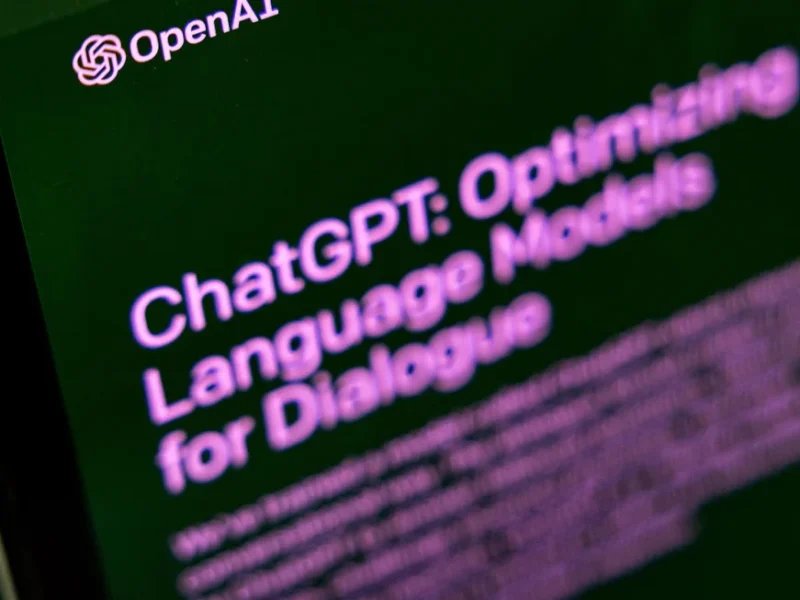Victor Miller, 42, recently filed paperwork to run for mayor of Cheyenne, Wyoming, but he wasn’t running for himself. Instead, he nominated a customized AI chatbot named VIC—short for “virtual integrated citizen”—to appear on the ballot. Miller argued that VIC would utilize technology from OpenAI to make political decisions and govern the city, noting that the AI chatbot is not affiliated with any political party.
Miller told CNN that AI has personally benefited him, such as by helping with his resume, and he believes it could also assist in governing a town. “I really want to see that happen,” he stated.
However, on Tuesday, OpenAI informed CNN that it had shut down Miller’s access to the tool used to engage with and persuade voters. OpenAI stated that using ChatGPT in this manner violates its policies. This incident underscores the complexities AI introduces to politics as stakeholders navigate the responsible use of AI amidst rapid technological advancements.
An OpenAI spokesperson confirmed, “We’ve taken action against these uses of our technology for violating our policies against political campaigning.”
According to OpenAI’s website, it prohibits “engaging in political campaigning or lobbying, including generating campaign materials personalized to or targeted at specific demographics.”
Miller’s motivation to create VIC stemmed from being denied access to city records about policies and procedures because his request was made anonymously. He believes that if he could have asked AI for the information, it would have known the law and provided the records.

Victor Miller is the creator of the AI chatbot running for mayor of Cheyenne, Wyoming.
The city did not respond to requests for comment regarding the denial of records, but Wyoming Secretary of State Chuck Gray stated that he is “closely” monitoring Victor Miller’s mayoral bid.
Gray explained, “Wyoming law is clear that, to run for office, one must be a ‘qualified elector,’ which necessitates being a real person. Therefore, an AI bot is not a qualified elector.” He suggested that the chatbot is essentially a front for Miller’s candidacy and mentioned that he wrote a letter to the Cheyenne municipal clerk expressing his concerns.
Although the public-facing version of VIC has been removed by OpenAI, Miller said the chatbot still functions on his own ChatGPT account. He plans to take it, along with a microphone, to a local Cheyenne library to allow voters to ask questions directly using its voice-to-text feature.
OpenAI also informed CNN that it took action against another candidate in the UK who was using its AI models for political campaigning. Steve Endacott, chairman of the AI company Neural Voice, was running for Parliament as an independent and using AI Steve, a chatbot, to answer voters’ questions on his website. While his site still operates, the chatbot is no longer powered by ChatGPT. Endacott did not respond to a request for comment.
His website previously offered a ChatGPT chatbot where voters could leave opinions and help create policies. If a voter asked about AI Steve’s policies and it didn’t have an answer, the tool would conduct a search and suggest a policy.
“Gimmick is indeed the appropriate term.”
Even as AI chatbots become more advanced, some experts cautioned CNN against relying solely on technology to govern. Jen Golbeck, a professor at the University of Maryland, emphasized that AI should only assist human decision-making, not replace it entirely. Concerns about misinformation affecting elections have also arisen, with instances like a viral fake recording in Slovakia. Golbeck suggested AI could aid in administrative tasks but stressed that final decisions should rest with humans.
David Karpf, from George Washington University, echoed Golbeck’s sentiment, calling AI political candidates a “gimmick” not to be taken seriously. He argued that AI lacks the qualifications to govern effectively and dismissed the need for legislation specifically targeting AI candidates, as they’re unlikely to garner significant support.
While Karpf sees the current trend as a momentary diversion, AI enthusiast Miller hopes it sparks interest in more AI candidates globally, beyond municipal and parliamentary levels.











